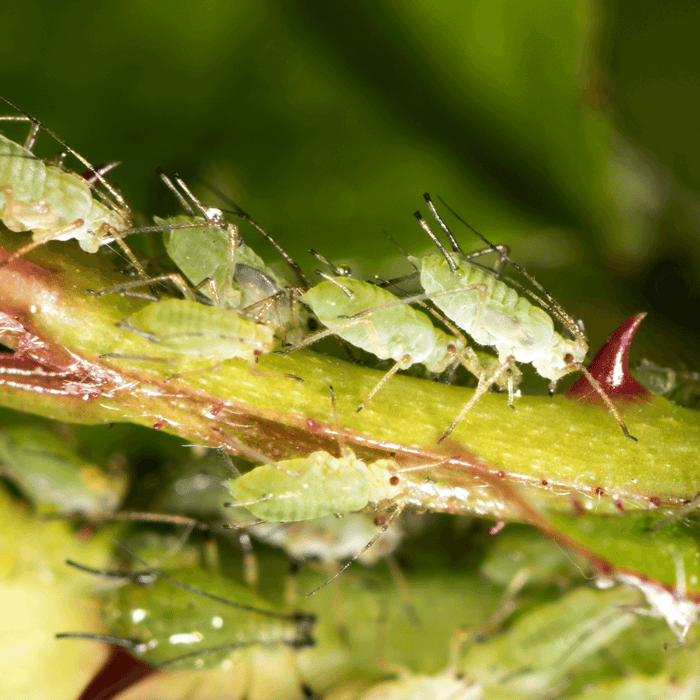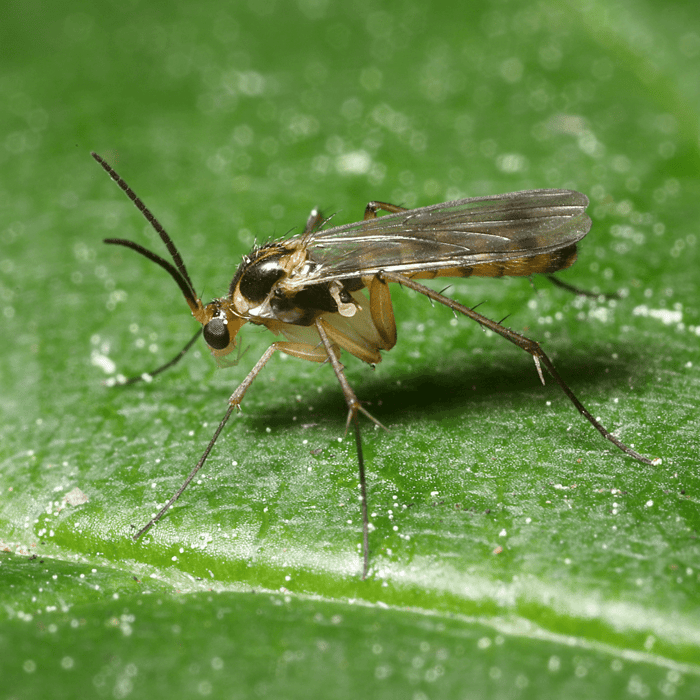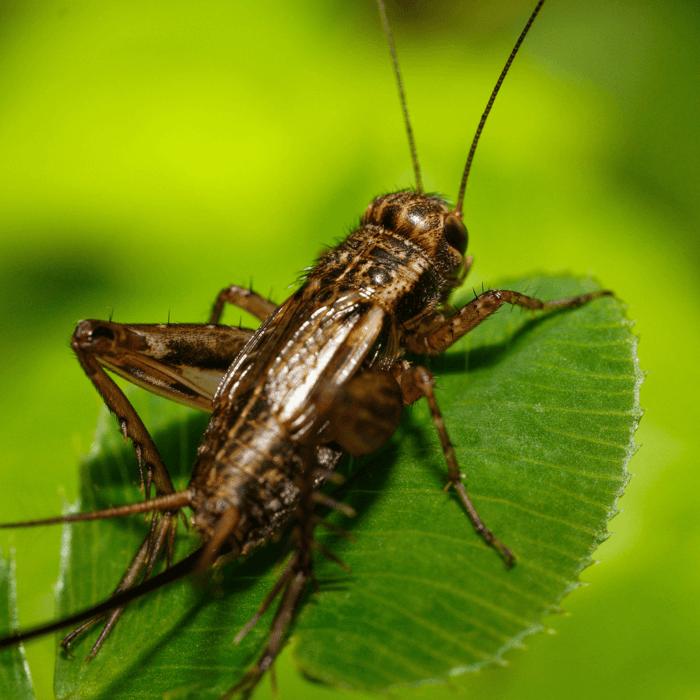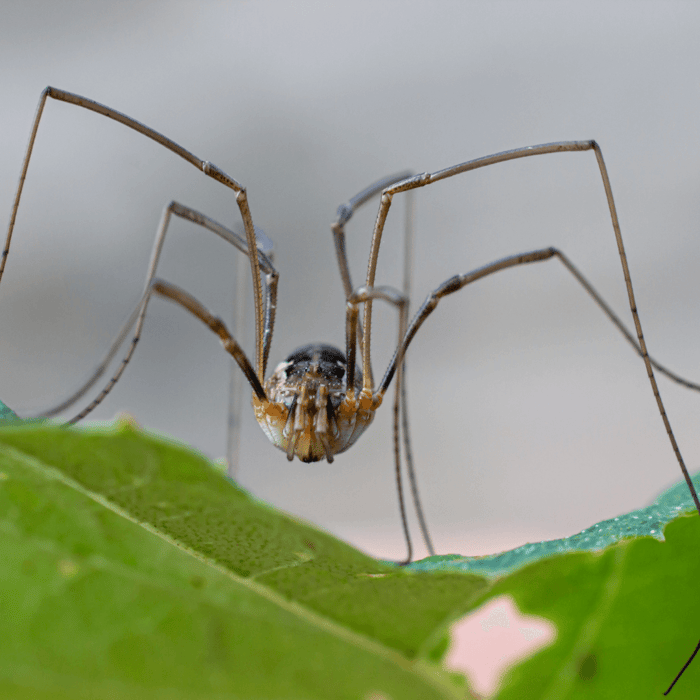As a passionate gardener, I have had my fair share of battles with aphids. These tiny, pear-shaped bodies can wreak havoc on a beautiful vegetable garden, ruining the hard work we put into nurturing our vegetable plants from seeds. This article will share my experiences and tips on effectively controlling aphids and maintaining a thriving garden. With this knowledge, you will be better equipped to tackle aphids head-on and ensure a bountiful harvest from your vegetable garden. Learning how to get rid of aphids has saved my sanity!
What Are Aphids and Why Should You Worry About Them?
Aphids are small, soft-bodied insects in white, black, green, and even pink colors. There are over 4,000 species of aphids worldwide, and they feed on the sap of plants, causing damage and spreading diseases. An aphid infestation can lead to stunted growth, curled leaves, and, ultimately, the death of your vegetable plants. If left unchecked, aphids can rapidly multiply, making it more challenging to eradicate them from your garden.
Identifying an Aphid Infestation
To spot an aphid infestation early on, check the undersides of leaves, where they often hide. Aphids tend to cluster in large groups, making them easier to spot. Additionally, look out for a sticky residue called honeydew, excreted by aphids as they feed on the plant's sap. This substance can attract other pests and encourage the growth of sooty mold. Monitoring your plants for signs of aphids and other pests will help you take quick action and keep your garden healthy. I've been devasted to find some healthy plants in my garden completely destroyed by these pests. Start looking for them early.
How to Get Rid of Aphids in Your Vegetable Garden
Use a strong stream of water: One of the easiest ways to remove aphids from your vegetable plants is by spraying them with a strong stream of water from a garden hose. This method dislodges the aphids without harming the plants. Make sure to focus on the undersides of leaves, where they tend to congregate. Repeat this process every few days until you no longer see aphids on your plants.
Attract beneficial insects: Introducing natural predators like green lacewings, ladybugs, and parasitic wasps to your vegetable garden can help control aphid populations. These insects feed on aphids and keep their numbers in check. Planting marigolds, dill, and fennel flowers can attract these insects to your garden. Providing a welcoming habitat for these predators will encourage them to stay and help protect your garden from aphids.
Use insecticidal soaps or neem oil: Insecticidal soaps and neem oil are effective organic solutions to kill aphids. Mix a few drops of liquid dish soap with water and spray it directly onto infested plants. You can also use neem oil, which has natural insecticidal properties. Be sure to follow the manufacturer's instructions for proper application. Regularly applying these treatments will help control aphid populations and protect your plants.
Diatomaceous earth: Diatomaceous earth is a natural, non-toxic powder made from fossilized diatoms. Sprinkling it around your plants can help deter aphids and other soft-bodied insects. The sharp edges of diatomaceous earth cut into the soft bodies of aphids, causing them to dehydrate and die. Be sure to use food-grade diatomaceous earth for the best results.
Homemade garlic or pepper spray: You can create a homemade repellent using garlic or hot peppers. Blend a few cloves of garlic or a couple of hot peppers with water, strain the mixture, and add a few drops of liquid dish soap. Spray the solution on the affected plants to deter aphids. Reapply after rain or as needed to maintain its effectiveness.
Biological controls: There are commercially available biological controls, such as Aphidoletes aphidimyza, a predatory midge, and Aphidius colemani, a parasitic wasp. These insects target specific aphid species and can help control the aphid population in your garden. Follow the instructions provided by the supplier to release these beneficial insects into your garden effectively.
Vegetable Seed Vault Kit | 35 Variety Pack

$29.95
$49.95
Ultimate Survival Seed Vault: 16,000+ Non-GMO Heirloom Vegetable Seeds for Emergency Preparedness Introducing the Seed Vault Kit, your all-in-one solution for emergency preparedness and sustainable gardening. This premium seed kit contains over 16,000 non-GMO, Heirloom, Non-Hybrid, and Open Pollinated seeds,… read more
Preventing Future Aphid Infestations
Inspect your garden regularly: Keep an eye on your vegetable plants, especially the undersides of leaves, to catch any aphid infestations early. Periodically inspecting your garden will help you address the issue before it gets out of hand. Schedule routine inspections and check your plants while watering or tending to other garden tasks.
Maintain a healthy garden: A healthy garden is less susceptible to aphid infestations. Make sure your vegetable plants are well-watered and have the proper nutrients. Rotate your crops and practice good garden hygiene by removing dead leaves and debris. Ensuring your plants grow optimally will make them more resistant to pests and diseases, including aphids.
Use reflective mulch: Aphids are attracted to certain colors, so using a reflective silver-colored mulch can help deter them from your vegetable garden. This method is beneficial for preventing aphids from your seeds and young plants. Reflective mulch not only discourages aphids but also helps conserve moisture, suppress weeds, and regulate soil temperature.
Companion Planting for Aphid Control
Companion planting is a technique used in gardening where different plants are grown together for mutual benefits. In the case of aphid control, certain plants can help deter aphids from your vegetable garden.
Plant-repellant plants: Some plants produce strong odors or chemicals that can repel aphids. Planting these species near your vegetable plants can help keep aphids at bay. Examples of such plants include:
- Catnip: The strong scent of catnip can deter aphids and other pests.
- Chives: The pungent smell of chives can help repel aphids and is especially beneficial when planted near lettuce, peas, and tomatoes.
- Nasturtiums: Nasturtiums have a chemical that aphids find unappealing, making them an excellent addition to your garden for aphid control.
Plant Trap Crops
- Trap crops: Trap crops are intentionally grown to attract pests, like aphids, away from your main vegetable plants. You can better protect your main vegetable plants by diverting the aphids to these trap crops. Examples of trap crops include:
- Mustard: Aphids are attracted to mustard plants, so planting them around the perimeter of your garden can help draw aphids away from your vegetables.
- Sunflowers: Aphids are drawn to sunflowers, which can serve as a trap crop to keep them away from your more valuable plants.
Physical Barriers
Row covers: Using floating row covers can help protect your plants from aphids and other pests. These lightweight, translucent fabrics allow sunlight and water to pass through while acting as a physical barrier against aphids. Row covers can be beneficial for protecting young plants and seedlings that are most vulnerable to aphid damage.
Monitoring and Record Keeping
Keep track of aphid populations: Regularly recording the presence of aphids and other pests in your garden can help you identify patterns and trends in their behavior. By keeping track of aphid populations, you'll be better equipped to take action and adjust your control methods as needed. Document your observations in a garden journal, noting the infestation's date, location, and extent.
Combining these methods will help you control aphids in your vegetable garden and create a more diverse and healthy ecosystem. Remember that perseverance and a proactive approach are crucial for successful aphid control. You can keep your garden healthy and thriving with patience, dedication, and the right strategies.
Conclusion
In conclusion, controlling aphids in your vegetable garden ensures your plants' health and productivity. You can effectively remove aphids and prevent future infestations using the abovementioned techniques. As a gardener, I know how important it is to protect our precious plants, and with the right approach, your vegetable garden will thrive. Remember that early detection and consistent control efforts are the keys to winning the battle against aphids. Happy gardening!
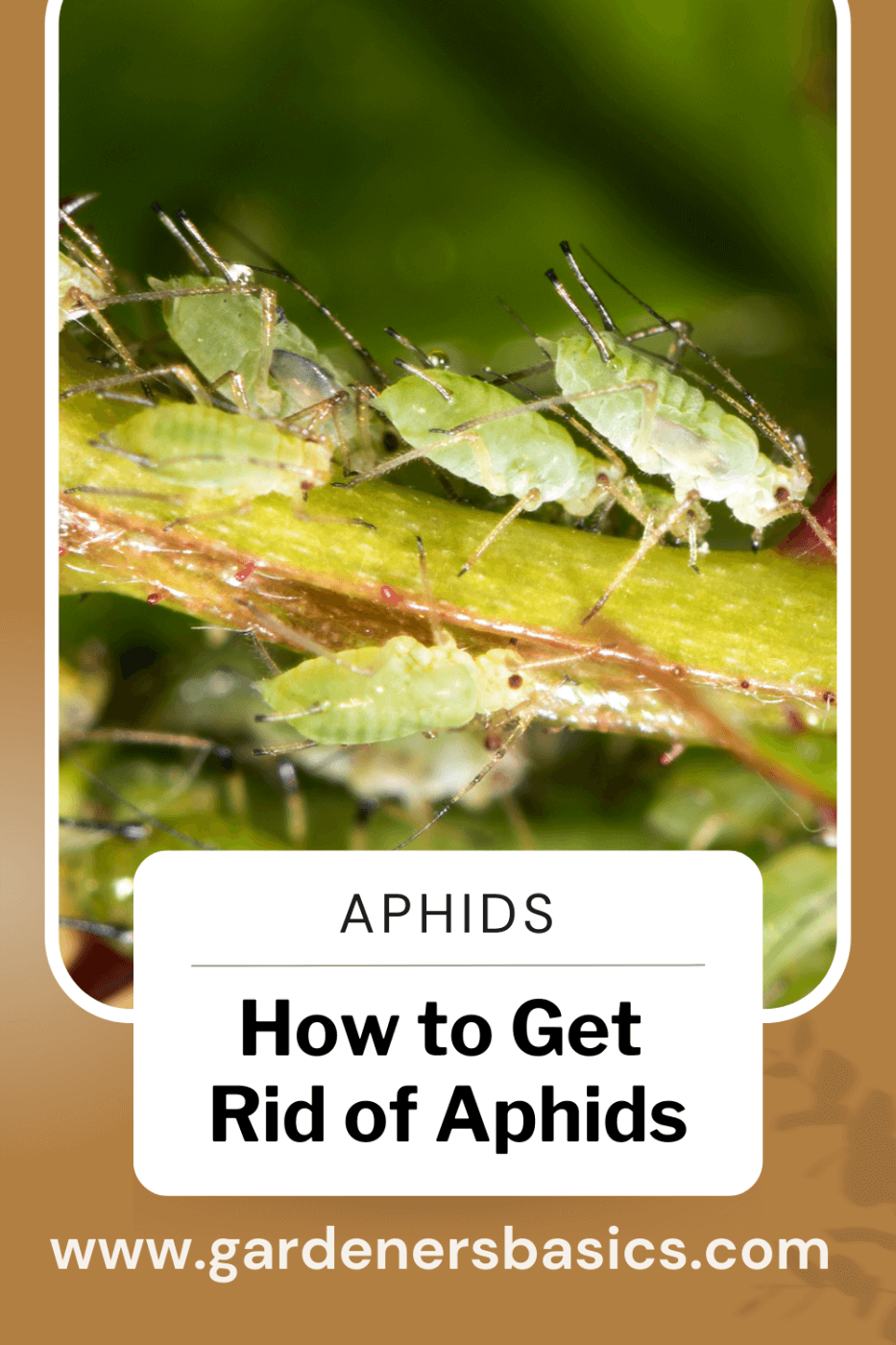 Frequently Asked Questions (FAQ) - How to Get Rid of Aphids
Frequently Asked Questions (FAQ) - How to Get Rid of Aphids
Q: How do aphids harm my vegetable plants?
A: Aphids feed on the sap of plants, which can cause stunted growth, curled leaves, and discoloration. In large numbers, they can weaken the plant and spread diseases, ultimately leading to plant death.
Q: How do I know if my garden has an aphid infestation?
A: Look out for clusters of small, pear-shaped insects on the undersides of leaves. Additionally, check for a sticky residue called honeydew, which aphids excrete as they feed.
Q: Can I use chemical pesticides to control aphids?
A: While chemical pesticides can effectively control aphids, they can also harm beneficial insects and wildlife in your garden. It's best to use organic methods first and only resort to chemical pesticides as a last resort.
Q: What are some companion plants that can help deter aphids?
A: Catnip, chives, and nasturtiums produce strong odors or chemicals that can repel aphids.
Q: How often should I inspect my garden for aphids?
A: Regularly inspect your garden at least once a week, paying close attention to the undersides of leaves, where aphids tend to congregate.
Seed Safe Survival Seed Kit - 35 Variety Pack

$29.95
$49.95
Seed Safe Survival Seed Kit: The Ultimate Heirloom Collection for Self-Sufficient Gardening Introducing the Seed Safe - 35 Varieties of Heirloom Vegetable, Herb, and Fruit Seeds, the ultimate solution for gardeners who want to secure a bountiful future harvest. This… read more
Q: Can aphids spread from plant to plant?
A: Yes, aphids can quickly spread from plant to plant. If you detect an infestation, it's essential to immediately prevent it from spreading.
Q: Can aphids be beneficial in any way?
A: While aphids can be detrimental to your vegetable garden, they can also serve as a food source for beneficial insects such as ladybugs and green lacewings.
Q: How can I prevent future aphid infestations?
A: Regularly inspecting your garden, maintaining a healthy garden environment, and using companion plants and physical barriers can all help prevent future aphid infestations.



